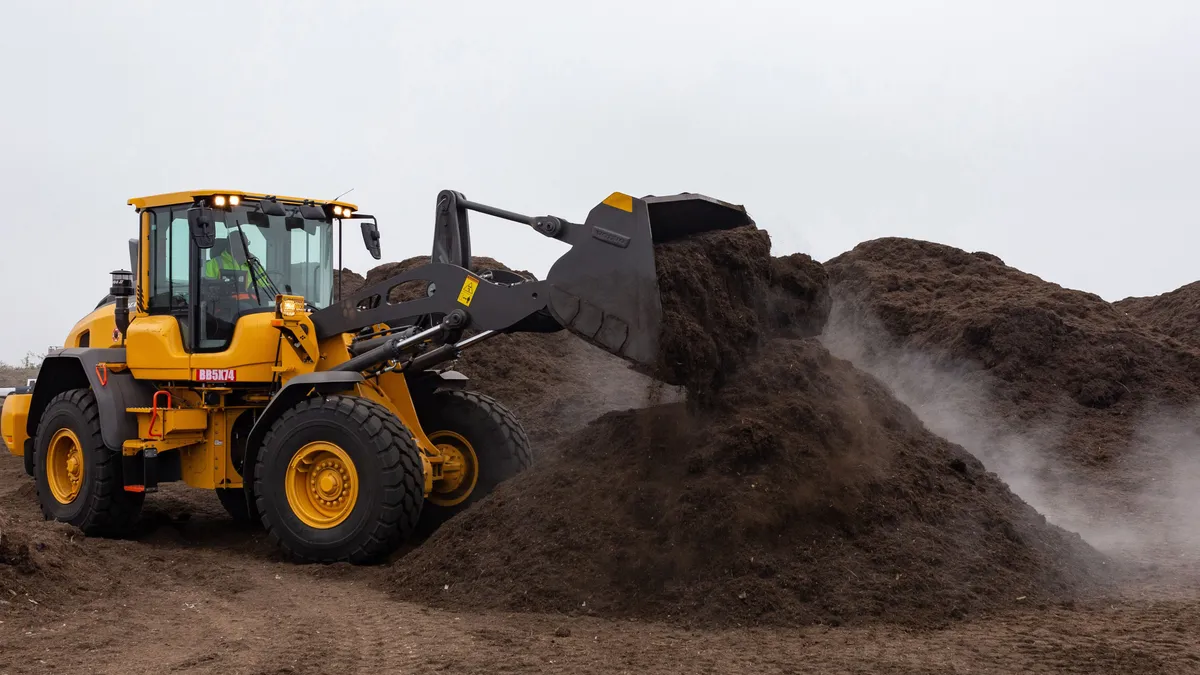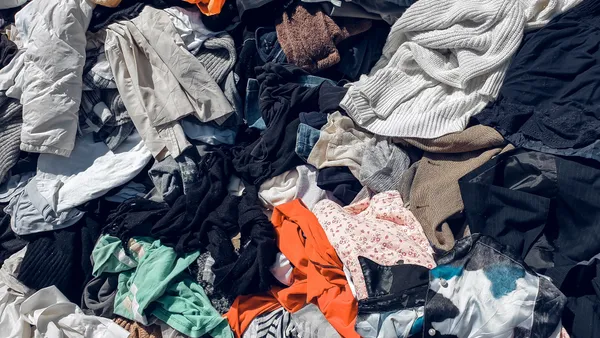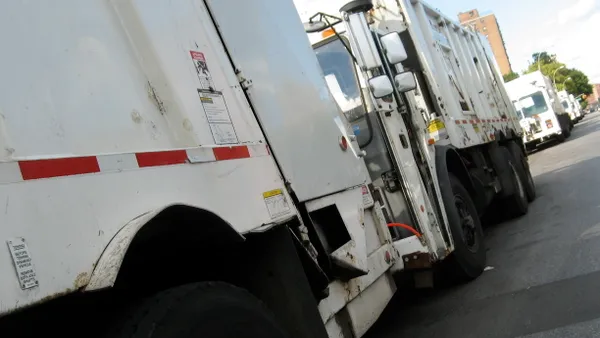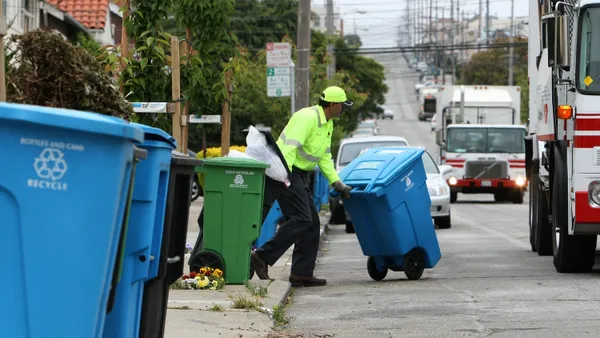UPDATE: July 20, 2018: Per a BYD press release, Recology has ordered the trucks for its Seattle operations and delivery is expected in the first half of 2019. The trucks — BYD's 8R Class-8 battery-electric refuse trucks fitted with New Way Viper rear loader refuse bodies — are the first electric solid waste collection vehicles to operate in the Pacific Northwest region.
The purchase order came after Seattle stipulated that collection companies must use trucks from 2018 or newer that are either electric or powered by alternative fuels. To fill out the remainder of its fleet, Recology plans to use trucks that run on diesel made from animal fats and vegetable oils.
Dive Brief:
- The Seattle City Council voted unanimously April 16 to give Seattle Public Utilities (SPU) authority for 10-year collection contracts with Waste Management and Recology, as reported by The Seattle Times. In total, the contracts have a value of nearly $850 million.
- Both companies will continue weekly refuse and organics pickup, with bi-weekly recycling pickup. Seattle's current collection contract expires in March 2019. A selection committee reviewed four bids — including proposals from Republic Services and Sound Sustainable Services — and ultimately decided to remain with the two incumbents.
- Notably, the contracts specify both companies must use trucks from 2018 or newer that are either electric or powered by alternative fuels. Recology plans to use diesel from animal fats and vegetable oils. Waste Management will use natural gas, which is certified based on contributions to the natural-gas grid.
Dive Insight:
Seattle last signed long-term waste management contracts in 2008 with the same companies — though "Recology" at the time was CleanScapes, a company which merged with Recology in 2011. The older contracts are, in total, about $5 million more expensive than the new ones, SPU said.
The renewable fuel requirement is a meaningful step, but may be less of a noticeable change in Seattle's market. The Waste Management fleet already meets those requirements and Recology's will comply "soon," according to The Seattle Times. Additionally, Recology plans to bring at least two electric collection vehicles online. Waste Management plans to deploy electric route-management and street-crew trucks, but has not made plans to deploy electric collection trucks.
Seattle's use of contracting requirements could be seen as part of a growing trend by local governments to influence environmental standards. Adding new collection or drop-off services — as Seattle will now do for foam packaging, textiles, CFLs, electronics and wood scraps — has become fairly common.
Setting such strict fleet standards is less common, but not unheard of. The recently launched RecycLA franchise system in Los Angeles also had clean fuel requirements, which had led to the purchase of more than 450 new collection vehicles as of February.












